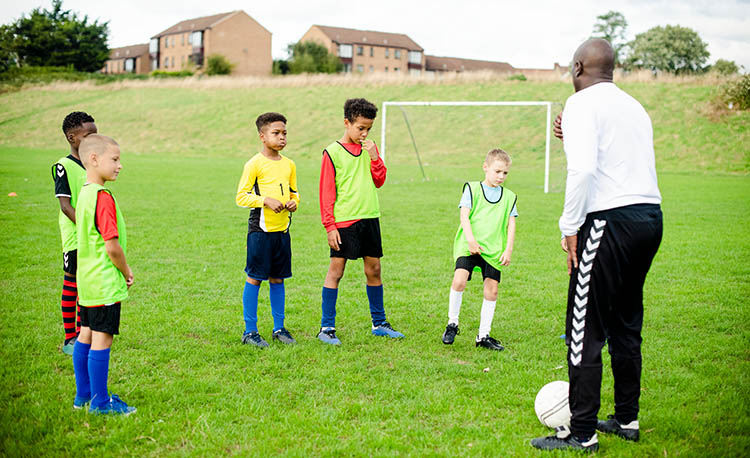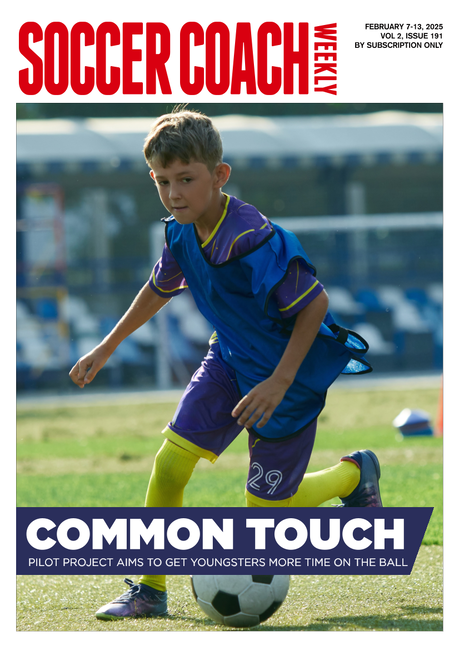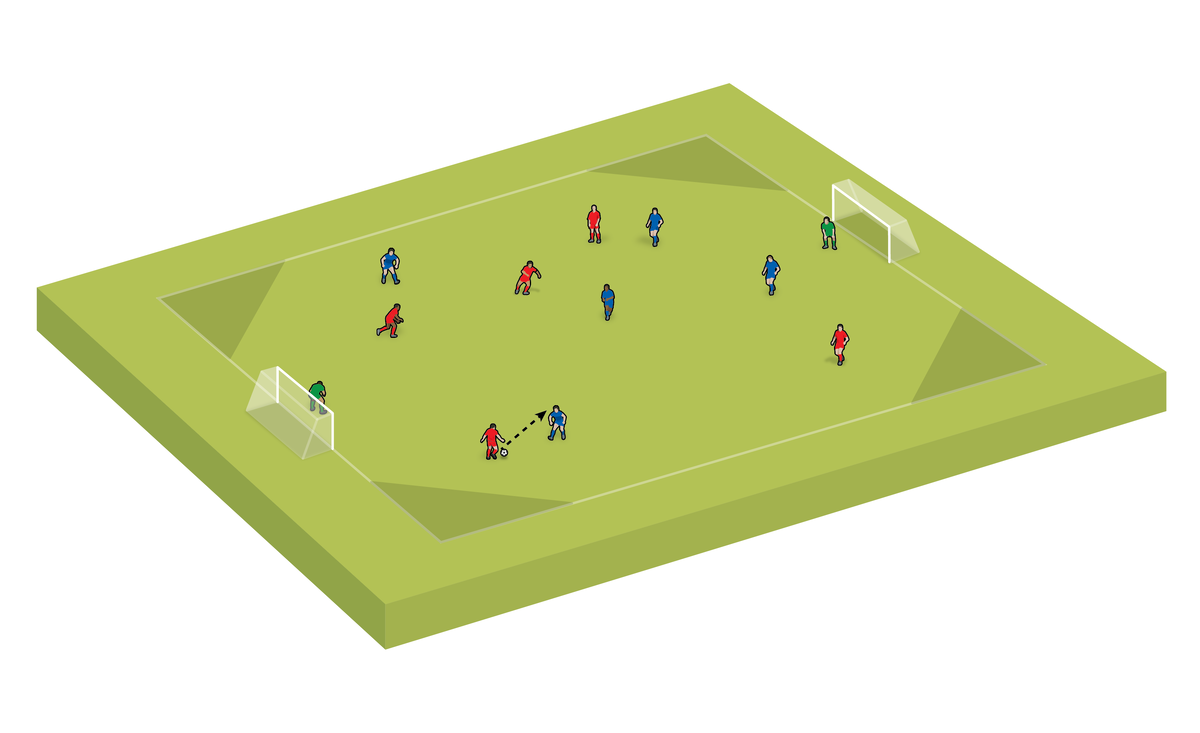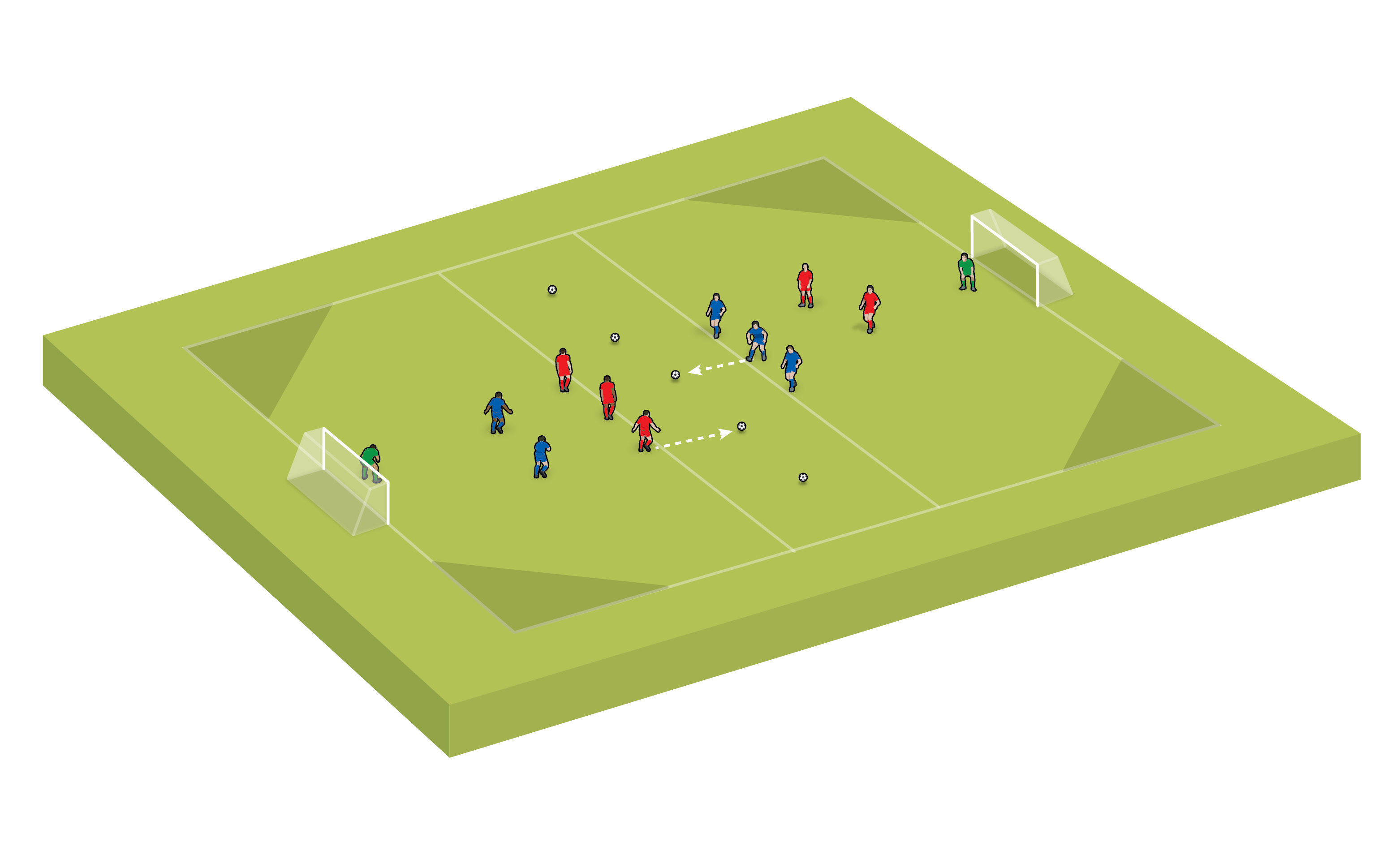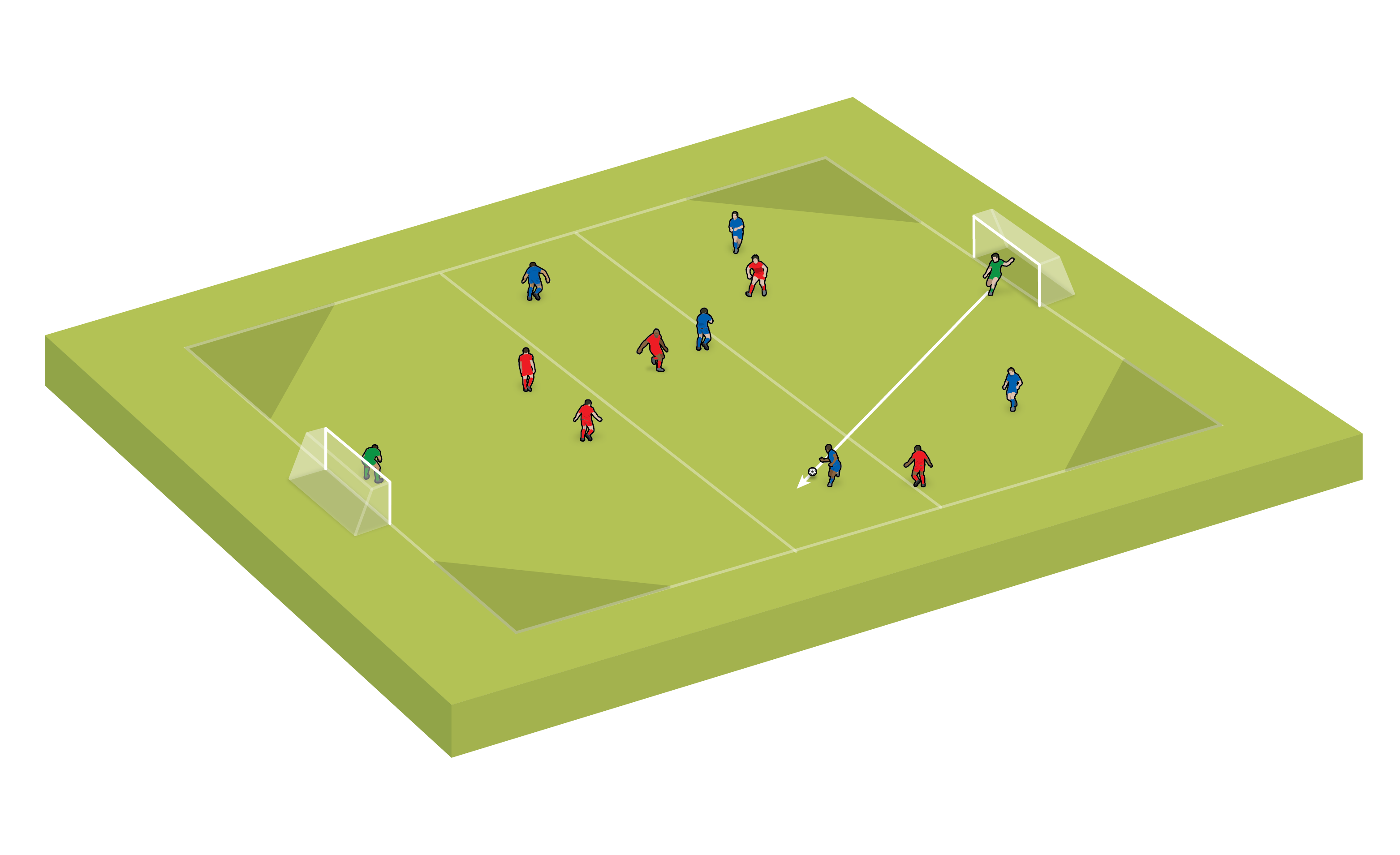How to use the right language for young players
Young players can take instructions like ’make the pitch big’ and ’check your shoulders’ very literally - so take a different approach
It often looks like coaches and players are all on the same page and understanding each other.
But, sometimes, soccer can be a different language to some – even those we share a pitch with.
With more modern-day terms from elite soccer, like ‘regista’ or ‘false nine’, there is usually an appreciation that it potentially needs to be followed by an explanation – at least when players first hear them.
However, even language we consider ‘basic’, in soccer terms, can mean something totally different to others, particularly very young players.
As someone who has coached players from age six and upwards, here are some simple phrases often misunderstood:
Get into space: To a six-year-old, space is probably something they have learned about in school, with stars and planets – not necessarily an area of a soccer field clear of other players.
Make the pitch big: Tell young players to ‘make the pitch big’ and you will likely be faced with them enthusiastically running to grab the cones you have carefully set out, moving them a few yards further away. And you can’t argue with their logic.
Check your shoulder: This is probably something we are all very keen to drum into young players - but, to them, what does it really mean? Check their shoulder for a bug that might have just landed on it? Probably not what the coach had in mind.
Paint pictures: Getting players to scan and notice their surroundings is important, but language is key. Tell them to ‘paint pictures’ and some will end up asking where the brushes and paper are.
Pick the ball up in midfield: Ask a player to do this and admire their baffled face when you award the other team a free-kick for handball.
Drive with the ball: They’re only seven – they’re not old enough to drive…
These phrases can be introduced over time, and players will certainly need a good understanding of them as they develop through the age groups.
But, if these ‘common’ phrases can cause confusion among young and inexperienced players, how can we successfully deliver messages, in the meantime?
Relating these ideas to everyday things could be one way. For example, when encouraging players to scan (or ‘check their shoulders’ or ‘paint pictures’), it could be related to a sat nav in their parents’ car.
"Tell young players to ’paint pictures’ and some will ask where the brushes are..."
Why do their parents use a sat nav? Well, it tells them where to go, where there is bad traffic and the quickest route. That is what we want players to have in their heads. So, when they are looking around, they are making their own sat nav in their head.
If we want players to ‘make the pitch big’ when in possession, relate this to a firework exploding - and when they lose the ball, teams can snap shut like a Venus flytrap.
And, when encouraging players to run with the ball, transform the ball into a car they are ‘driving’ forwards at speed.
Maybe encourage players to come up with their own words and descriptions for things. For example, I was showing a group of U7s an out-of-possession formation recently, and one said it looked like an airplane. So, for that group, it instantly became the airplane shape.
Finally, ensure players understand ‘why’ they are doing things. If a player learns it is good to ‘check their shoulder’, that’s a great starting point - but are they understanding why? What they are looking for and how can they use that information?
If they don’t know, there is little point in them doing it in the first place. So, whatever words or phrases you develop with your players, be sure to check their understanding of the ‘why’, as well.
Related Files
Newsletter Sign Up
Coaches Testimonials

Gerald Kearney, Downtown Las Vegas Soccer Club

Paul Butler, Florida, USA

Rick Shields, Springboro, USA

Tony Green, Pierrefonds Titans, Quebec, Canada
Subscribe Today
Discover the simple way to become a more effective, more successful soccer coach
In a recent survey 89% of subscribers said Soccer Coach Weekly makes them more confident, 91% said Soccer Coach Weekly makes them a more effective coach and 93% said Soccer Coach Weekly makes them more inspired.
*includes 3 coaching manuals
Get Weekly Inspiration
All the latest techniques and approaches
Soccer Coach Weekly offers proven and easy to use soccer drills, coaching sessions, practice plans, small-sided games, warm-ups, training tips and advice.
We've been at the cutting edge of soccer coaching since we launched in 2007, creating resources for the grassroots youth coach, following best practice from around the world and insights from the professional game.
